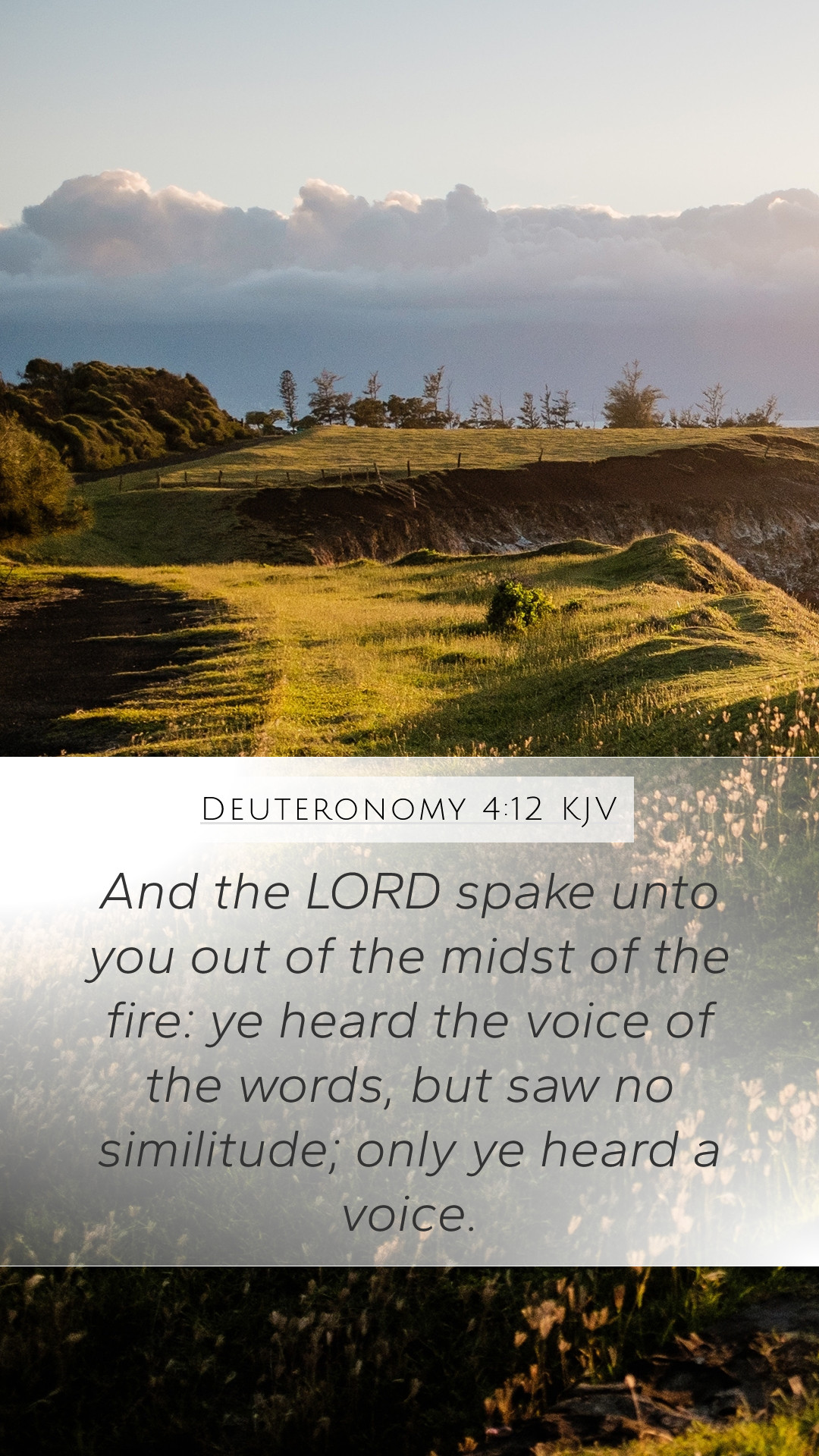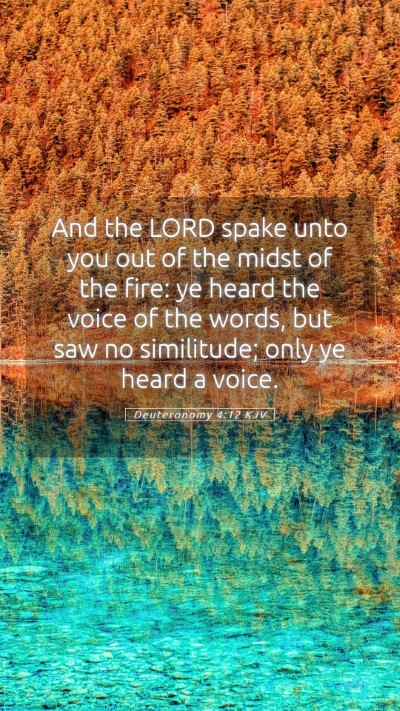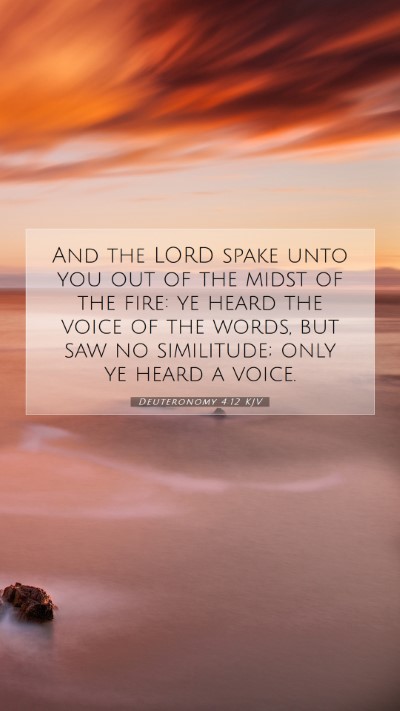Understanding Deuteronomy 4:12
Deuteronomy 4:12 states, "And the Lord spoke unto you out of the midst of the fire: ye heard the voice of the words, but saw no similitude; only ye heard a voice." This verse highlights a profound moment in the history of Israel where God revealed Himself to His people. Below is a comprehensive commentary analysis based on insights from respected theologians.
Biblical Exegesis and Verse Meaning
This verse is pivotal in understanding the manner in which God communicated with the Israelites. The absence of a visible form or image emphasizes the transcendence and holiness of God. The following insights reflect the combined interpretations from various public domain commentaries:
- Matthew Henry's Commentary:
Henry emphasizes that God's voice, which was powerful and direct, should instill reverence in the listeners. He points out that although they heard God’s voice, they were not permitted to see an image or likeness. This teaches that God’s essence is beyond human comprehension, urging believers to focus on His word and commands rather than forming images or idols.
- Albert Barnes' Notes:
Barnes notes the educational aspect of this encounter, indicating it served as a foundational lesson to prevent idolatry. Hearing God's voice confirms His presence and authority, while the lack of a visible form underscores that worship should not be directed to images but solely to God Himself.
- Adam Clarke's Commentary:
Clarke highlights the significance of fire in this context, remembering that it symbolizes God's holiness. He interprets the voice emerging from the fire as a deliberate choice, where God uses natural elements to communicate His divine message. This moment solidifies the idea that faith is rooted not in sight but in what is spoken by God.
Key Takeaways from Deuteronomy 4:12
In summary, Deuteronomy 4:12 presents crucial lessons for believers:
- The Nature of God: God is not limited by physical representation, transcending human understanding and expectations.
- The Importance of Hearing: God’s communication is crucial, and believers are called to heed His voice.
- Rejection of Idolatry: The verse reinforces the rejection of idols, urging spiritual integrity and purity in worship.
Application of the Verse
Understanding this verse can transform personal faith and worship. Here are some ways to apply its teachings:
- Engage in prayer and meditation to hear God's voice rather than seeking tangible signs.
- Participate in Bible study groups aiming at understanding God's word deep into its context.
- Utilize Bible study resources and tools focused on understanding the significance of God’s communication.
Related Bible Verses
The following verses resonate with the themes of Deuteronomy 4:12, expanding its interpretation and significance:
- Exodus 20:18-21 - Discusses the fear of the people upon hearing God's voice at Sinai.
- 1 Kings 19:11-12 - Illustrates God's communication in a still, small voice, emphasizing listening over visual manifestations.
- Isaiah 40:18 - Questions what likeness can be compared to God, reinforcing His incomparable nature.
Conclusion
Deuteronomy 4:12 serves as a profound reminder of God’s authority and the nature of divine communication. As believers, engaging in in-depth Bible verse analysis enriches not only individual understanding but also community discussions in online Bible study environments. In seeking the meaning of Bible verses, we turn to God's voice, listening for guidance in navigating faith and life.


